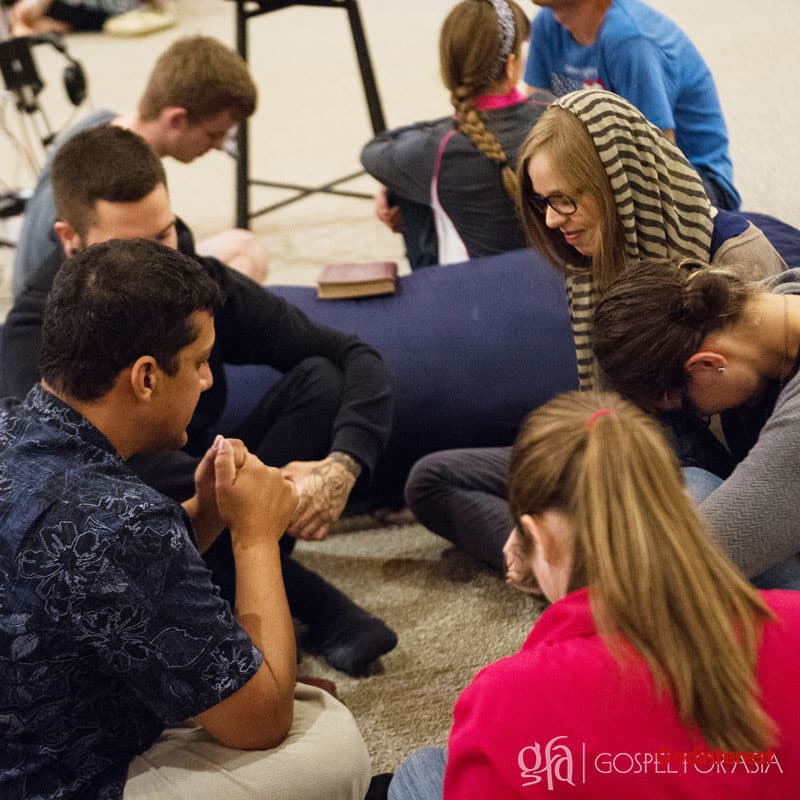Open-home-a-phobic, noun (op-en-hom-a-fo-bick) From Latin phobicus; Greek phobikos;
1. Someone terrified to open his or her home to guests.
2. Someone filled with anxiety due to the overwhelming feelings that his or her home is not good enough for company, the rooms not large enough, the food not tasty enough.
3. Someone who panics at the thought of fitting hospitality into a schedule jammed with deadlines, timelines and bottom lines.
Symptoms include:
– Gagging at the word “guest”.
– Uncontrollable urges to hide when the doorbell rings.
– Sweating when the church bulletin pleads for people to include internationals for holiday meals.
If there ever was an age in which the beneficial, healing properties of scriptural hospitality was more needed than in this one, I don’t know which age that might be. The AARP Bulletin reported,
“Social isolation has become such a problem in Great Britain that Prime Minister Theresa May appointed a ‘minister of loneliness’ to measure it, determine its impact and develop a strategy to address it.”
In addition to watching what we eat, exercising daily and developing an overall strategy of attempting to be healthy, researchers on aging are discovering it is also important to focus on realizing a sense of purpose, developing positive mental habits and developing meaningful social connections.

What an opportunity for the church in society and for the Christians who follow Jesus to reach out with antidotes to overcome the social isolation that exists and is growing in our contemporary world.
At the Gospel for Asia campus in Wills Point, Texas, we actively promote hospitality in various ways by encouraging staff members to open their homes to one another for times of prayer or fellowship, to have people over for dinner, meet ups or get-togethers, and to build a community amongst ourselves that cares about the needs of our colleagues and neighbors in practical and substantive ways.
Yet a majority of Christ-followers don’t seem to understand that the One they follow was without a home of His own or a place where He knew he could lay His head. And yet He was the most hospitable human ever to walk the surface of this planet. We are not aware that we have developed a raging neurosis, which I term openhomeaphobia, the fear of inviting people into our homes.
For instance, how many of us have recently invited a small group from our church, a few neighbors from our apartment or condo-complex, colleagues from work, even members of our own extended family into our home for a dessert evening or for a meal? How many of us have prayerfully considered who around us are alone, who are suffering from social isolation (maybe we ourselves are part of that statistic!) and have asked, “Lord, what can I do about it?”
Sometimes–often, in fact–it is fear that keeps us from doing what it is our hearts are telling us to do. Long ago, as a young woman, I learned that if fear popped up in the face of any venture that was challenging me to do what I thought I should, it was a sure sign that was exactly what I should be doing.

So, let’s look at some of the cures for this neurosis.
Here are 20 practical remedies for overcoming openhomephobia.
- No matter what, always greet people warmly at the door.
- NEVER apologize for the condition of your home.
- If you are insecure with hospitality, be as SIMPLE as possible.
Do only coffee, tea and dessert. Hold a pie party and let the bakers in the group bring the pies. Serve baked potatoes with toppings and a salad. Have a soup-pantry supper. Buy from a local grocery. Serve from pans off the stove. - Hold a potluck.
Have everyone who comes bring something. - Plan a leftovers party.
Have guests share their leftovers and add them to yours. Ask, “What’s in your refrigerator? This is what’s in mine.” - Never do an in-depth cleaning before people come.
Just pick up, light candles, put out flowers. Clean after they go. - ALWAYS accept other people’s offer to help.
- Bring people home after church.
Let them set the table. Serve pancakes. Serve French toast. Serve frozen waffles. - Extend hospitality as a team.
Team with your husband or wife. Team with your housemate. Team with friends. Team with church members or work colleagues. - Pray before you invite anyone into your home.
Ask God to provide the guest list. - Develop a list of standard conversational questions to rely on.
Think about each guest before he/she comes. Try to decide upon one thing you really want to know about him/her. - Include some element of silliness, like holding an evening when everyone brings one funny story to tell. Or eat the meal backwards, beginning with dessert (a healthy one!).
- Hold a “craving potluck.”
Everyone brings something he/she really craves. Do this without pre-planning. - Organize a work-together exchange.
“We’ll help you with this house project if you’ll help us with this home project.” - When children are included, build some part of the event around them.
Then everyone participates in the activities. Everyone plays musical chairs. Everyone dances (even the toddler) around the piano player. - Do things for the purpose of healing and welcoming–not to impress.
What kind of background music will soothe people after a busy day, a busy week? What is something nice you can put on the table for a centerpiece? - Figure out some follow-up.
Most likely, people will not write thank-you notes. Can you call and tell them how much you enjoyed their being in your home? Can you write a note? - Make SURE everyone is introduced.
Don’t assume people know one another. This can be done informally, but in larger groups it is better to have everyone tell his/her name and one thing about themselves. - Declare the purpose of the evening:
“We invited you tonight so you could have an opportunity to get to know one another better.” - It is perfectly appropriate to set time limits. Invite people for dinner from 6:30 p.m. to 10:30 p.m. You can say (as you stand), “Well, this has been a wonderful evening [or afternoon or breakfast], but many of you have busy schedules tomorrow [or today], as do we, so we don’t want to go late [or long], but we want to tell you before you leave how much we have loved having you all in our home.” (David has often threatened to come down in his pajamas with a similar message: “You all must be getting tired”¦”!)
As a last neurosis cure, remind yourself that the very act of welcome and invitation is a God-like act. When we extend welcome, we are showing to others what God is like.
Romans 15:7:
- “Welcome one another, therefore, just as Christ has welcomed you for the glory of God” (RSV).
- “Accept one another, then just as Christ accepted you, in order to bring praise to God” (NIV).
- “Therefore, receive one another, just as Christ also received us, to the glory of God” (NKJV).
Do you think, could it be possible, that if one Christian conquers a neurosis of openhomeaphobia, that one single individual could impact a lonely, socially isolated society? What if tens of folk live a life of hospitality, hundreds of welcoming folk, thousands of inviting folk, ten thousands of accepting folk were cured? What impact, exactly, do you think that would have on this world?

Image Source: Gospel for Asia, Photo of the Day
Go here to know more about Gospel for Asia: Facebook | Sourcewatch | Integrity | Flickr | GFA | Lawsuit
Visit Us
Godinterest Community Fellowship is dedicated to proclaiming Christ and set apart to save and empower lives. Sign-up to receive inspiration to draw closer to God each day.
Our Location: Central London Community Church - Crawford Place, London, W1H 5JE
Regular Meetings Divine Service: Every Saturday from 11:15 AM
Godinterest is sponsored by Dean Jones of Jamaica Homes




I really like what you guys are usually up too.
This type of clever work and reporting! Keep up the fantastic works guys
I’ve included you guys to my personal blogroll.
adreamoftrains web host
It also states; 10 If there come any unto you, and bring not this doctrine, receive him not into your house, neither bid him God speed:
11 For he that biddeth him God speed is partaker of his evil deeds.
Sometimes you have to have a phobia when everything is taken into context.